Compared: 2022 Chevrolet Tahoe vs. 2022 Ford Expedition
These two full-size SUVs offer a tremendous amount of space and comfort for up to eight people.
Capital One
QuickTakes:
Ford and Chevy practically own the full-size-SUV segment with the recently refreshed Expedition and new-for-2021 Tahoe. Both models handily outsell their Japanese competitors. If you need a vehicle with massive amounts of passenger and cargo volume, decent power, and a high towing capacity, one of these American stalwarts might be just the ticket. Few vehicles beyond parade floats have a larger footprint.
Note: While the Expedition is available in Max form with a longer body, that model better aligns with Chevy’s Suburban, neither of which we cover here.
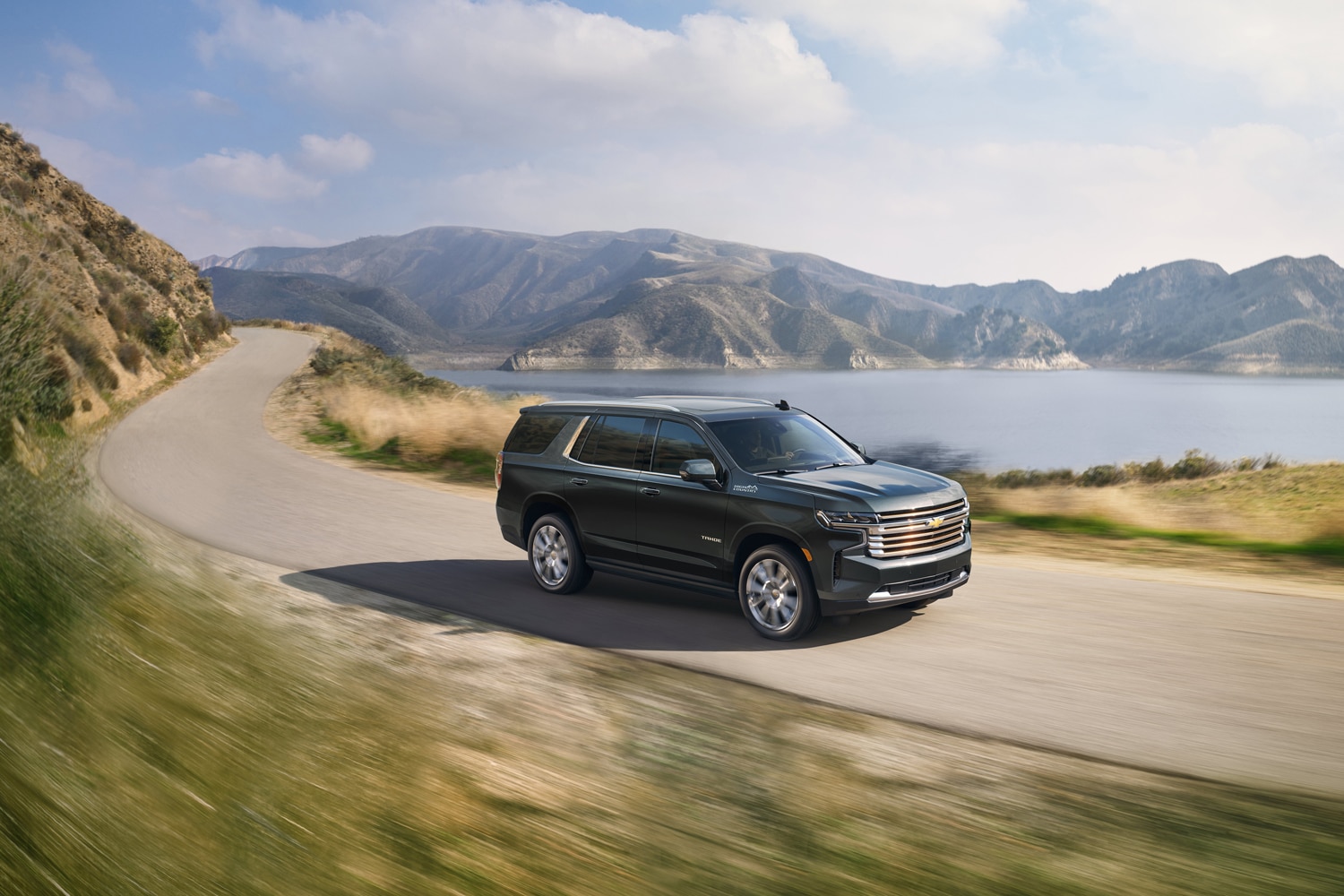 Chevrolet
Chevrolet
Chevrolet Tahoe vs. Ford Expedition: Price
The base rear-wheel-drive Tahoe comes with a 355-hp 5.3-liter V8 and costs $52,095. Chevy offers two other powertrains above that: a 277-hp turbo-diesel six-cylinder (starting at $53,090) and a 420-hp 6.2-liter V8 ($64,910). The lineup consists of six trims (LS, LT, RST, Z71, Premier, High Country), some of which come with eight seats and others with seven. For $3,000, buyers can upgrade to four-wheel drive on any trim except for the Z71, where it’s standard.
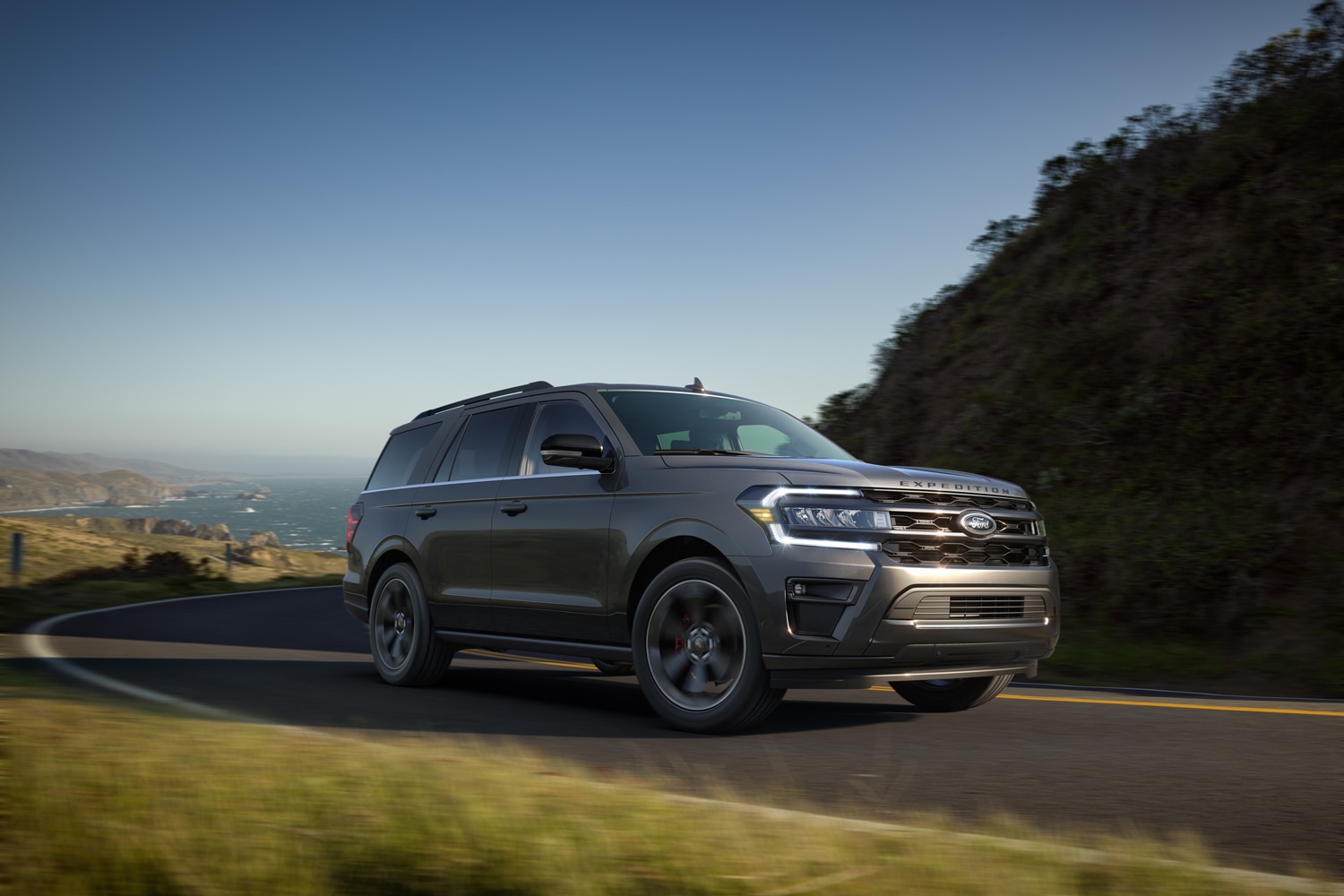 Ford
Ford
The Expedition starts at $53,775, or $1,680 more than the Tahoe. Adding four-wheel drive brings the total to $56,825. Every one of the six available trim levels relies on a twin-turbo V6, but Ford has tuned that engine to provide different output levels. The lowly XL STX and XLT trims make 380 horses; the more luxurious Limited, Platinum, and King Ranch models make 400; and the rugged Timberline makes 440 (as well as Expeditions with the Stealth Performance package). The base model seats five to maximize cargo capacity, while the other trims fit seven or eight people.
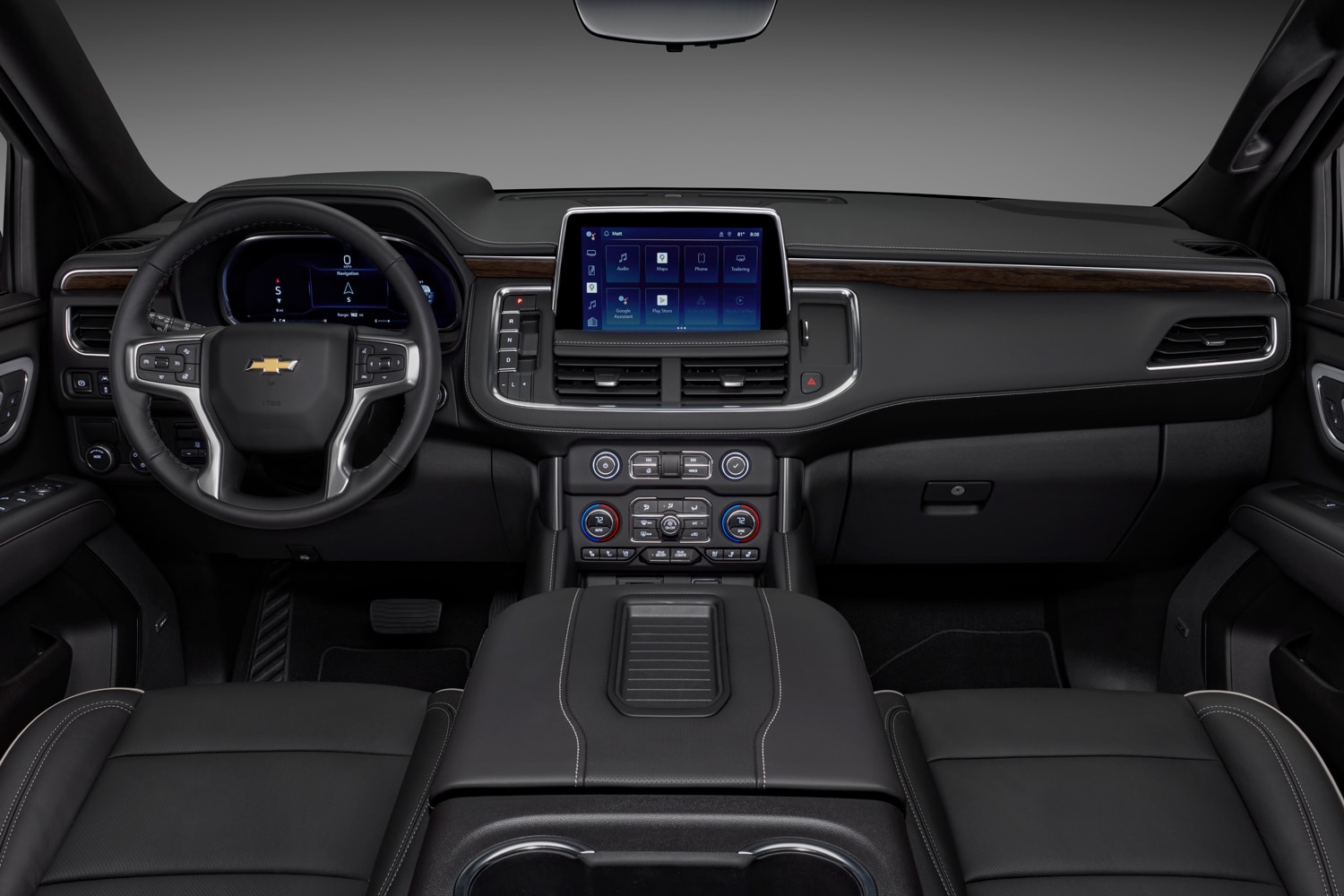 Chevrolet
Chevrolet
Chevrolet Tahoe vs. Ford Expedition: Features
While the Expedition has a fresher face than previous model years, the most obvious change is inside: The Ford’s standard 12.0-inch and optional 15.5-inch infotainment touchscreens put the Tahoe's base 8.0-inch and available 10.2-inch units to shame. Ford also provides BlueCruise on Platinum models. This driver-assistance feature allows for hands-free driving on certain mapped highways. GM offers a similar system called Super Cruise in several models, but it has yet to bring such tech to the Tahoe.
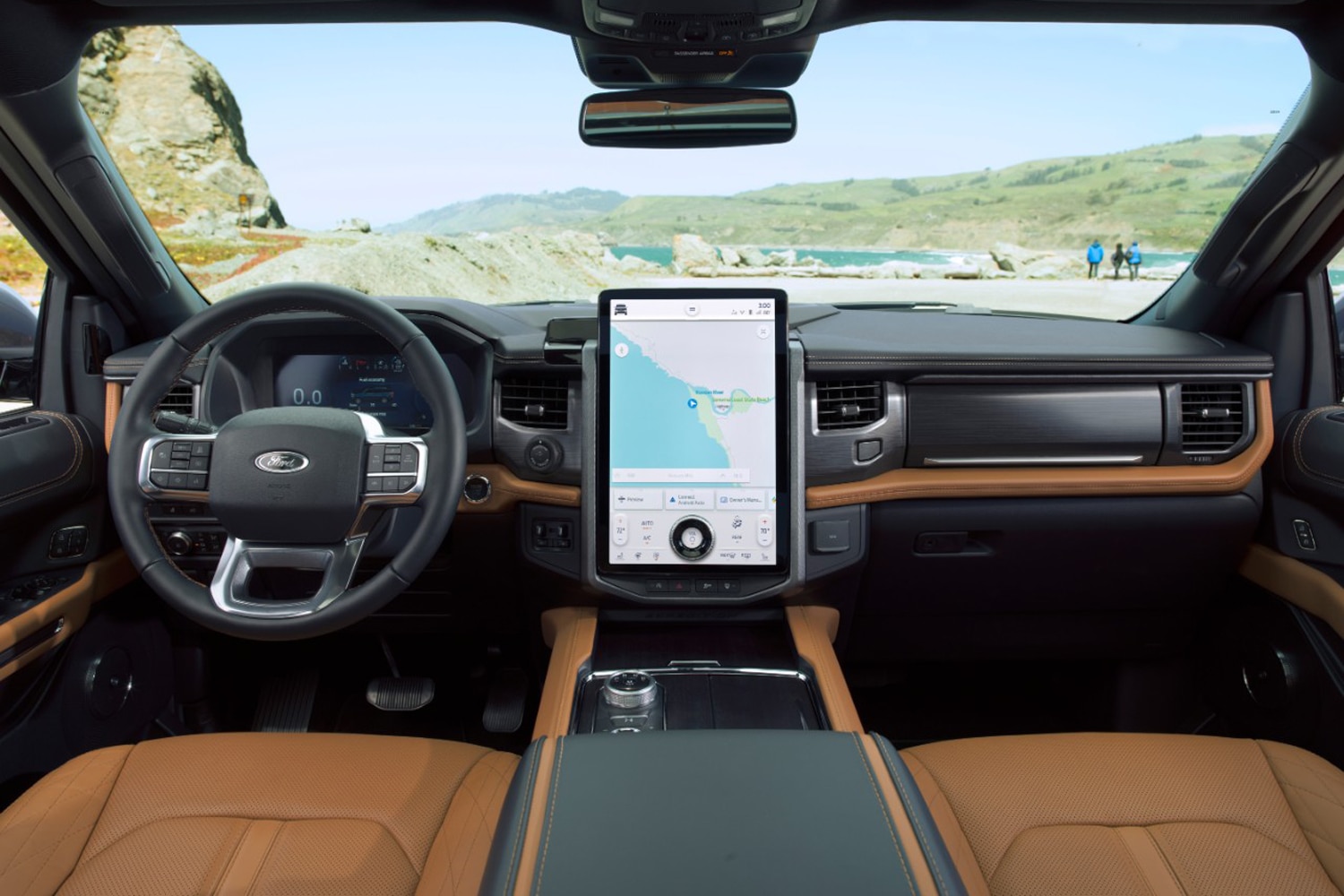 Ford
Ford
If you prefer the grunt and sound of a V8 engine, the Chevy is the only way to go in this pairing. However, the Expedition's high-output V6 can beat all of the Tahoe’s engines in horsepower and torque, including the diesel—another reminder that cylinder count isn’t everything. The diesel does offer the best fuel economy, though; a two-wheel-drive Tahoe with that engine sees up to 24 mpg combined, while all other models are in the teens.
When equipped with GM’s optional dampers that can change ride firmness in milliseconds and air springs that can raise and lower the vehicle, the Tahoe delivers a plusher, more controlled ride than the Expedition. And while both full-sizers afford enough third-row head- and legroom for average adults, the Tahoe is the space king. With the rear rows folded, it provides 123 cubic feet of cargo volume, while the Expedition has 105. Plus, various trim levels come with a power-sliding center console that can move back toward the second row to free up space in the front.
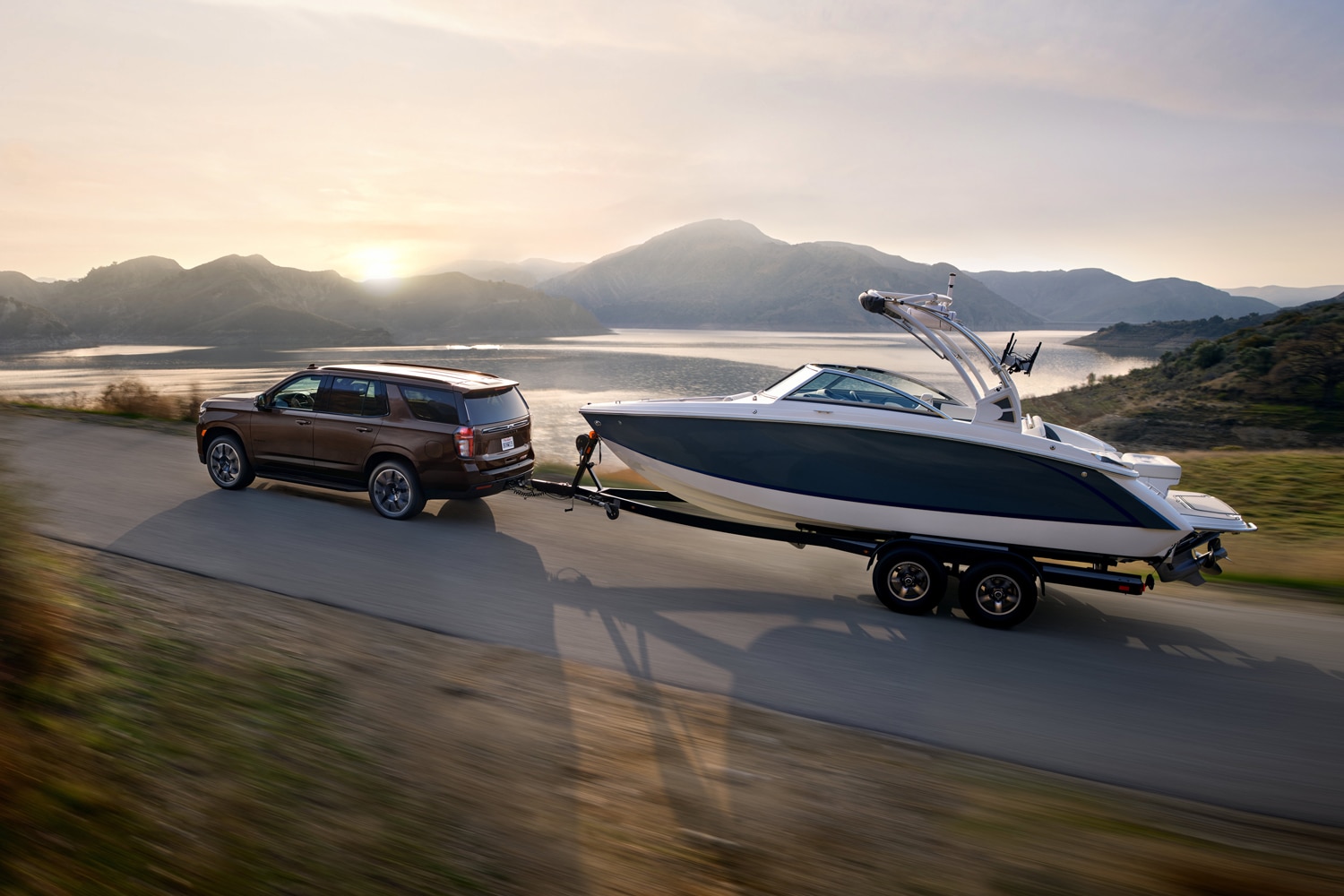 Chevrolet
Chevrolet
Chevrolet Tahoe vs. Ford Expedition: Towing
The base Tahoe has a reasonably high tow rating of 7,900 pounds, whereas the entry Expedition can handle 6,600 pounds. When equipped with each brand’s max towing package, though, the Ford charges ahead with a 9,300-pound capacity compared to Chevy’s 8,400 pounds.
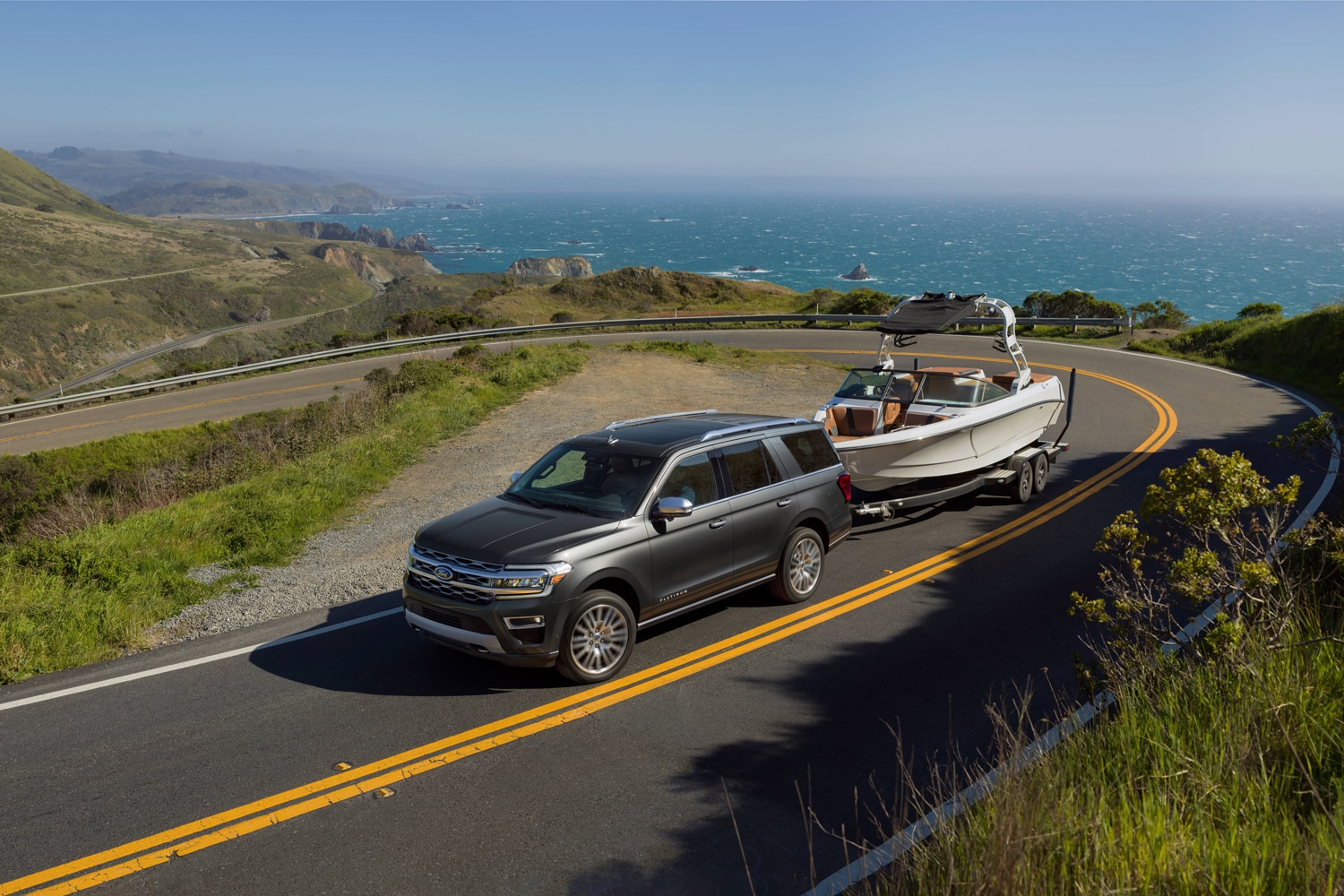 Ford
Ford
Four-wheel-drive versions of each SUV offer slightly lower capacities. Also worth noting: The Expedition’s towing package comes with Ford’s helpful Pro Trailer Backup Assist system; using a knob on the dash, you simply tell the vehicle where you want the trailer to go and the Expedition will steer for you to get it there.
Written by humans.
Edited by humans.
 Clifford Atiyeh
Clifford AtiyehClifford Atiyeh is an independent writer, photographer, and creative consultant. He has reported for dozens of websites, magazines, and newspapers in his 20-year journalism career, during which he has tested more than 650 new vehicles. His automotive expertise focuses on product development, market analysis, and the litigation and legislation affecting the industry. Clifford is vice president of the New England Motor Press Association and runs a marketing consultancy.
Related articles
View more related articles